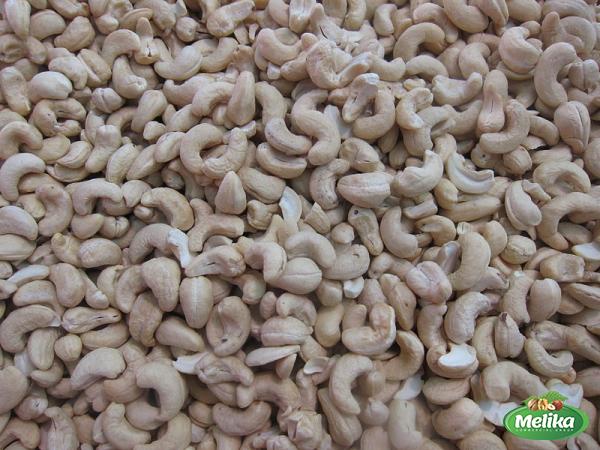Bangladesh is emerging as a significant player in the global roasted cashew nut industry. The country’s favorable climate, increasing investment in the sector, and growing demand for high-quality cashew nuts have made it a promising hub for cashew nut processing and export. This article provides an overview of the roasted cashew nut industry in Bangladesh, including its production, processing, marketing, challenges, and future prospects. Cashew nuts, with their rich flavor and nutritional benefits, have gained popularity worldwide. In Bangladesh, the cultivation of cashew trees is primarily concentrated in the southern region, including Khulna, Patuakhali, and Satkhira districts. The climate and soil conditions in these areas are ideal for cashew tree cultivation. The production of raw cashew nuts in Bangladesh has been on the rise in recent years, driven by the expansion of cashew plantations and improved farming practices. The government of Bangladesh, recognizing the potential of the cashew nut industry, has taken initiatives to support farmers, such as providing subsidies for cashew tree plantation and organizing training programs on modern cultivation techniques. Once harvested, the raw cashew nuts are processed to remove the outer shell and obtain the cashew kernel. Cashew nut processing units in Bangladesh have experienced significant growth in recent years, fueled by increased investment and modernization of processing equipment. These units employ various techniques for roasting cashew nuts, including dry roasting, oil roasting, and steam roasting. The roasting process enhances the taste and aroma of cashew nuts, making them a preferred snack option for consumers. The marketing and distribution of roasted cashew nuts in Bangladesh are primarily handled by both traditional and modern retail channels. Traditional retailers, such as grocery stores and local markets, continue to play a vital role in the distribution network. However, there is also a growing trend of online and supermarket sales, offering consumers a wide range of cashew nut products and brands to choose from. The roasted cashew nut industry in Bangladesh faces certain challenges that need to be addressed to ensure its sustained growth. One of the main challenges is the lack of sufficient raw materials, as the demand for cashew nuts exceeds the current production capacity. This has led to a reliance on imports to meet the domestic demand, further increasing the cost of production.

nuts
 To overcome this challenge, there is a need for increased investment in cashew tree plantation and the adoption of improved farming practices. Another challenge faced by the industry is the lack of modern processing facilities. While some processing units have been upgraded with advanced technology, many others still operate with outdated machinery. Upgrading processing units and enhancing the skills of workers through training programs would help improve productivity and the quality of roasted cashew nuts. Additionally, ensuring food safety and meeting international quality standards are crucial for the success of Bangladesh’s roasted cashew nut industry in the global market. The government and relevant authorities need to enforce strict regulations and provide support to cashew nut processing units to maintain hygienic processing practices and obtain necessary certifications. Despite these challenges, the future prospects for the roasted cashew nut industry in Bangladesh look promising. The increasing consumer preference for healthy snacks, the growing demand for cashew nuts in the global market, and the government’s continued support to the sector contribute to its potential growth. Moreover, Bangladesh has shown significant progress in exporting roasted cashew nuts to countries like the United States, the United Kingdom, Germany, and Australia. In conclusion, the roasted cashew nut industry in Bangladesh is progressively gaining recognition in the global market. The country’s favorable climate, increasing investment, and growing demand for high-quality cashew nuts position it as a promising player in the industry. Addressing the challenges, such as the lack of raw materials and modern processing facilities, and ensuring food safety and quality standards, will be crucial to unlocking the industry’s full potential. With proper measures and support, Bangladesh can further expand its presence in the global roasted cashew nut market, contributing to its economic growth and benefiting farmers and stakeholders involved in the value chain. The roasted cashew nut industry in Bangladesh is gaining momentum, driven by favorable climatic conditions, increased investment, and growing demand for high-quality cashews globally. This article delves into the business aspects of the industry, discussing production, processing, marketing, and the challenges it faces. Additionally, it explores the opportunities and potential for future growth in the roasted cashew nut sector in Bangladesh. 1. Production of Raw Cashew Nuts: Cashew nut cultivation in Bangladesh is concentrated in the southern region, known for its ideal climate and suitable soil conditions. Farmers, supported by government initiatives and subsidies, are expanding cashew tree plantations, resulting in increased production of raw cashew nuts. The rising production levels present an opportunity for Bangladesh to meet the growing demand for cashews both domestically and internationally.
To overcome this challenge, there is a need for increased investment in cashew tree plantation and the adoption of improved farming practices. Another challenge faced by the industry is the lack of modern processing facilities. While some processing units have been upgraded with advanced technology, many others still operate with outdated machinery. Upgrading processing units and enhancing the skills of workers through training programs would help improve productivity and the quality of roasted cashew nuts. Additionally, ensuring food safety and meeting international quality standards are crucial for the success of Bangladesh’s roasted cashew nut industry in the global market. The government and relevant authorities need to enforce strict regulations and provide support to cashew nut processing units to maintain hygienic processing practices and obtain necessary certifications. Despite these challenges, the future prospects for the roasted cashew nut industry in Bangladesh look promising. The increasing consumer preference for healthy snacks, the growing demand for cashew nuts in the global market, and the government’s continued support to the sector contribute to its potential growth. Moreover, Bangladesh has shown significant progress in exporting roasted cashew nuts to countries like the United States, the United Kingdom, Germany, and Australia. In conclusion, the roasted cashew nut industry in Bangladesh is progressively gaining recognition in the global market. The country’s favorable climate, increasing investment, and growing demand for high-quality cashew nuts position it as a promising player in the industry. Addressing the challenges, such as the lack of raw materials and modern processing facilities, and ensuring food safety and quality standards, will be crucial to unlocking the industry’s full potential. With proper measures and support, Bangladesh can further expand its presence in the global roasted cashew nut market, contributing to its economic growth and benefiting farmers and stakeholders involved in the value chain. The roasted cashew nut industry in Bangladesh is gaining momentum, driven by favorable climatic conditions, increased investment, and growing demand for high-quality cashews globally. This article delves into the business aspects of the industry, discussing production, processing, marketing, and the challenges it faces. Additionally, it explores the opportunities and potential for future growth in the roasted cashew nut sector in Bangladesh. 1. Production of Raw Cashew Nuts: Cashew nut cultivation in Bangladesh is concentrated in the southern region, known for its ideal climate and suitable soil conditions. Farmers, supported by government initiatives and subsidies, are expanding cashew tree plantations, resulting in increased production of raw cashew nuts. The rising production levels present an opportunity for Bangladesh to meet the growing demand for cashews both domestically and internationally.
Specifications of nuts
 2. Cashew Nut Processing: Once harvested, raw cashew nuts undergo processing to extract the cashew kernel. Cashew nut processing units in Bangladesh have seen significant growth due to increased investment and modernization. From traditional dry roasting to oil roasting and steam roasting, various techniques are employed to enhance the taste and aroma of cashew nuts. The adoption of modern processing equipment and practices can further improve productivity and the quality of roasted cashews. 3. Marketing Channels: Both traditional and modern retail channels play a vital role in the marketing and distribution of roasted cashew nuts in Bangladesh. Traditional retailers, such as local grocery stores and markets, continue to be an essential part of the distribution network. However, there is a notable shift towards online platforms and supermarkets that offer a diverse range of cashew nut products. Embracing these evolving marketing channels can help reach a wider consumer base and increase sales. 4. Challenges of Raw Materials: One of the primary challenges faced by the roasted cashew nut industry in Bangladesh is the limited supply of raw cashews. The domestic demand for cashews surpasses the current production capacity, leading to an increasing reliance on imports. To address this challenge, more investments are needed in cashew tree plantation and improved farming practices to boost local production. 5. Modern Processing Facilities: Despite the significant growth in the industry, some cashew nut processing units in Bangladesh still lack access to modern processing facilities. Outdated machinery hampers productivity and affects the quality of roasted cashews. Upgrading processing units and equipping them with advanced technology, along with providing training programs to workers, is essential to enhance product quality and meet international standards. 6. Food Safety and Quality Standards: Maintaining food safety and meeting international quality standards are crucial for the success of Bangladesh’s roasted cashew nut industry in the global market. It is important for the government and relevant authorities to enforce strict regulations and support cashew nut processing units in implementing hygienic processing practices. Obtaining necessary certifications ensures that roasted cashews meet the quality expectations of international buyers.
2. Cashew Nut Processing: Once harvested, raw cashew nuts undergo processing to extract the cashew kernel. Cashew nut processing units in Bangladesh have seen significant growth due to increased investment and modernization. From traditional dry roasting to oil roasting and steam roasting, various techniques are employed to enhance the taste and aroma of cashew nuts. The adoption of modern processing equipment and practices can further improve productivity and the quality of roasted cashews. 3. Marketing Channels: Both traditional and modern retail channels play a vital role in the marketing and distribution of roasted cashew nuts in Bangladesh. Traditional retailers, such as local grocery stores and markets, continue to be an essential part of the distribution network. However, there is a notable shift towards online platforms and supermarkets that offer a diverse range of cashew nut products. Embracing these evolving marketing channels can help reach a wider consumer base and increase sales. 4. Challenges of Raw Materials: One of the primary challenges faced by the roasted cashew nut industry in Bangladesh is the limited supply of raw cashews. The domestic demand for cashews surpasses the current production capacity, leading to an increasing reliance on imports. To address this challenge, more investments are needed in cashew tree plantation and improved farming practices to boost local production. 5. Modern Processing Facilities: Despite the significant growth in the industry, some cashew nut processing units in Bangladesh still lack access to modern processing facilities. Outdated machinery hampers productivity and affects the quality of roasted cashews. Upgrading processing units and equipping them with advanced technology, along with providing training programs to workers, is essential to enhance product quality and meet international standards. 6. Food Safety and Quality Standards: Maintaining food safety and meeting international quality standards are crucial for the success of Bangladesh’s roasted cashew nut industry in the global market. It is important for the government and relevant authorities to enforce strict regulations and support cashew nut processing units in implementing hygienic processing practices. Obtaining necessary certifications ensures that roasted cashews meet the quality expectations of international buyers.
buy nuts
 7. Growing Demand for Healthy Snacks: Consumers worldwide are increasingly seeking healthy snack options, and cashew nuts have become a popular choice. This global trend presents an excellent opportunity for the roasted cashew nut industry in Bangladesh. By leveraging its competitive advantage in terms of taste, quality, and affordability, Bangladesh can carve out a larger market share for its roasted cashew nuts. 8. Export Potential: Bangladesh has demonstrated significant progress in exporting roasted cashew nuts to countries like the United States, the United Kingdom, Germany, and Australia. With its growing production capacity and improvements in processing and quality standards, Bangladesh has the potential to increase its share of the global roasted cashew nut market. Expanding international trade opportunities can lead to economic growth and create more employment opportunities within the industry. 9. Value Addition and Product Innovation: To gain a competitive edge in the global market, Bangladeshi cashew nut processors should focus on value addition and product innovation. Developing unique flavors and packaging, as well as diversifying product offerings, will help attract more consumers and increase brand recognition. Engaging in research and development activities to create value-added cashew nut products can lead to higher profit margins for the industry. 10. Government Support and Policy Reform: The government of Bangladesh plays a crucial role in fostering the growth and development of the roasted cashew nut industry. Continued support through subsidies, favorable policies, and investments in research and development will stimulate the sector’s progress. Streamlining administrative procedures, facilitating access to finance, and promoting international collaborations can further strengthen the business environment for cashew nut processors. Conclusion: The roasted cashew nut industry in Bangladesh holds immense promise, driven by favorable climatic conditions, increased investment, and growing global demand. By addressing challenges such as the availability of raw materials, upgrading processing facilities, and ensuring adherence to food safety and quality standards, Bangladesh can harness the potential for economic growth and job creation. The government’s continued support, along with value addition and product innovation, will enable the industry to establish a strong presence in the international marketplace, bolstering the country’s position as a key player in the roasted cashew nut industry.
7. Growing Demand for Healthy Snacks: Consumers worldwide are increasingly seeking healthy snack options, and cashew nuts have become a popular choice. This global trend presents an excellent opportunity for the roasted cashew nut industry in Bangladesh. By leveraging its competitive advantage in terms of taste, quality, and affordability, Bangladesh can carve out a larger market share for its roasted cashew nuts. 8. Export Potential: Bangladesh has demonstrated significant progress in exporting roasted cashew nuts to countries like the United States, the United Kingdom, Germany, and Australia. With its growing production capacity and improvements in processing and quality standards, Bangladesh has the potential to increase its share of the global roasted cashew nut market. Expanding international trade opportunities can lead to economic growth and create more employment opportunities within the industry. 9. Value Addition and Product Innovation: To gain a competitive edge in the global market, Bangladeshi cashew nut processors should focus on value addition and product innovation. Developing unique flavors and packaging, as well as diversifying product offerings, will help attract more consumers and increase brand recognition. Engaging in research and development activities to create value-added cashew nut products can lead to higher profit margins for the industry. 10. Government Support and Policy Reform: The government of Bangladesh plays a crucial role in fostering the growth and development of the roasted cashew nut industry. Continued support through subsidies, favorable policies, and investments in research and development will stimulate the sector’s progress. Streamlining administrative procedures, facilitating access to finance, and promoting international collaborations can further strengthen the business environment for cashew nut processors. Conclusion: The roasted cashew nut industry in Bangladesh holds immense promise, driven by favorable climatic conditions, increased investment, and growing global demand. By addressing challenges such as the availability of raw materials, upgrading processing facilities, and ensuring adherence to food safety and quality standards, Bangladesh can harness the potential for economic growth and job creation. The government’s continued support, along with value addition and product innovation, will enable the industry to establish a strong presence in the international marketplace, bolstering the country’s position as a key player in the roasted cashew nut industry.











Your comment submitted.